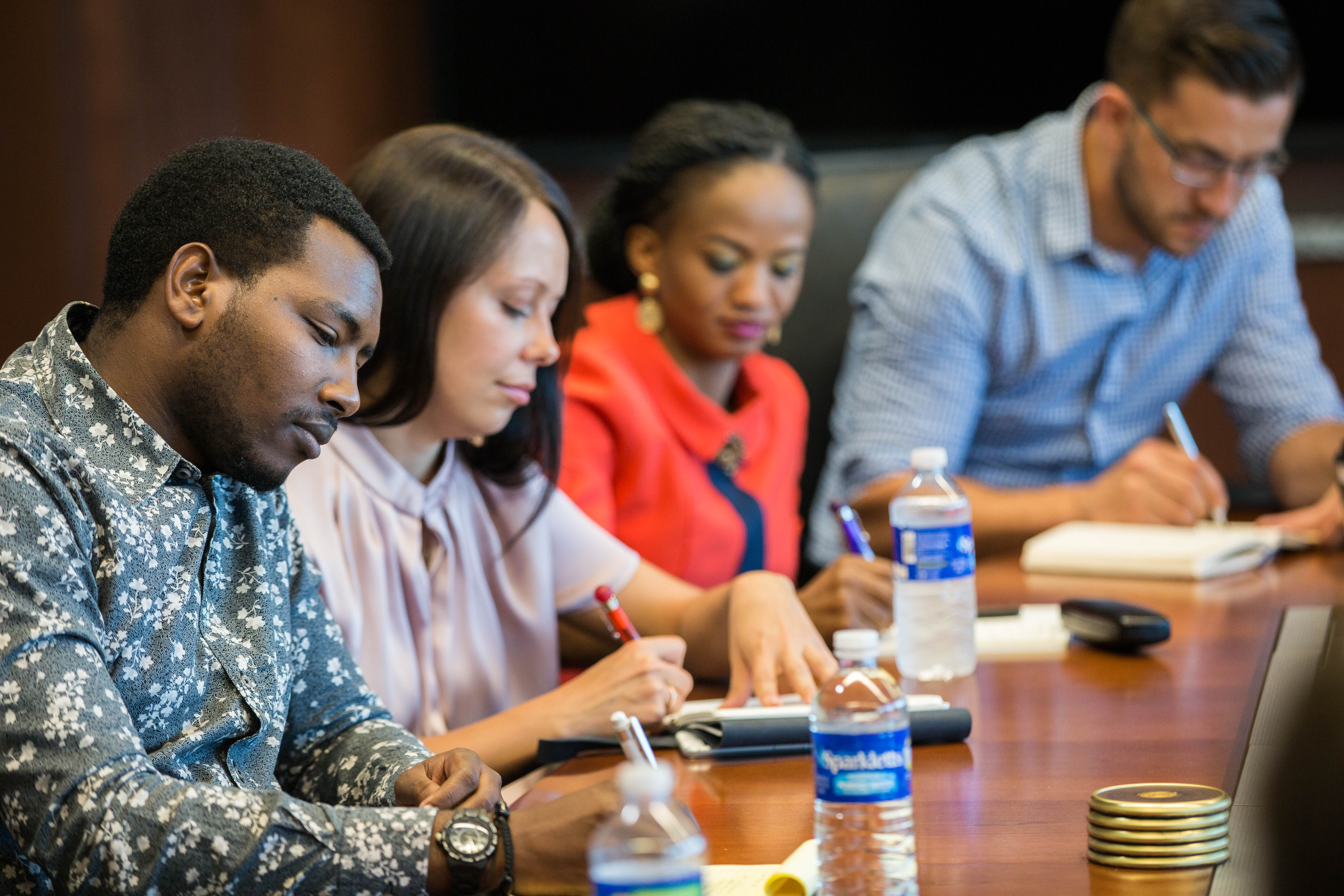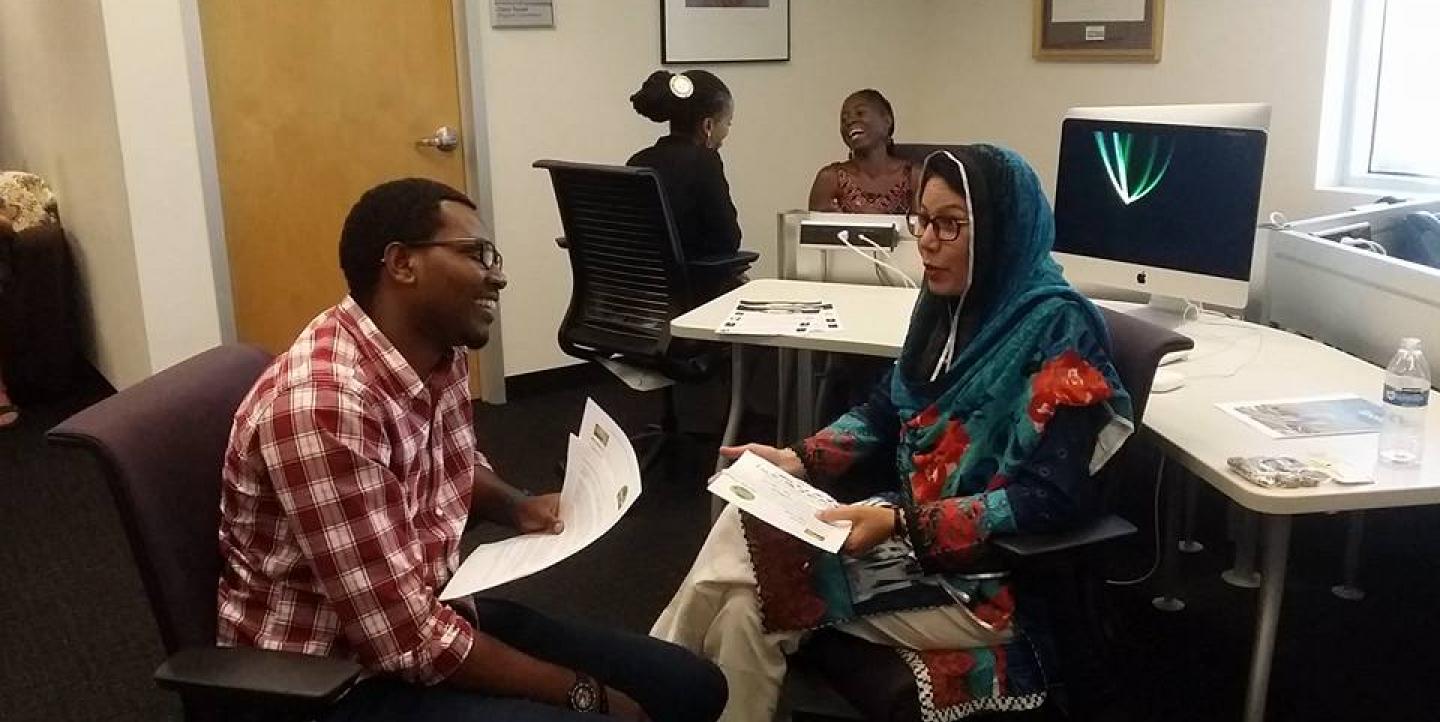The Hubert H. Humphrey Fellowship Program brings young and mid-career professionals from designated countries to the United States for a year of non-degree graduate-level study, leadership development, professional collaboration and related opportunities for cultural exchange.
Thousands of people from all walks of life apply for it, but only the candidates who demonstrate potential for leadership in public service get selected to spend an academic year at 14 participating universities across the U.S.
I applied for the Humphrey fellowship with the goal of creating an incubation center for young investigative reporters — not only in Rwanda, but also for the Great Lakes region of Africa. My priority project is to mentor a new generation of critical thinkers and fill the gap in the country’s media landscape.
The Humphrey fellowship experience at the Walter Cronkite School of Journalism and Mass Communication is exceptional. Each fellow is offered opportunities to interact with American peers at conferences, meetings and seminars; professional experiences and the Washington Global Leadership Forum, a four-day seminar in Washington during which fellows learn about U.S. institutions, federal agencies and international organizations. Although there are many choices for professional enrichment, the fellowship prepared me to take up meaningful leadership roles once back in my home nation, and got opportunities for a rich exchange of information among other fellows, faculty, students, professionals and other U.S. citizens.
Each fellow takes a yearlong course in global leadership, which is a cool way to analyze how crazy the world has become and reminds us about our responsibility, as global journalists, to be proactive defenders of democracy. Fellows are trained in critical thinking and in ethical, objective approaches to investigative reporting.

Four months after the Humphrey program kicked off, I have become more globally minded and focused than ever before. As a journalist, I learned how the world is changing and becoming increasingly complex. I have gotten to know that today’s dynamism requires timely and innovative solutions to overcome tomorrow's challenges, and that the media’s involvement is inevitable. The Humphrey fellowship offers the knowledge and tools needed to turn our societies into better communities.
Here are some important tips to consider before you apply:
Identify your goals
While a fellowship can be a fantastic opportunity, don’t apply just because it sounds fun. Instead, do it because you know you’ll enjoy the opportunity, get something out of it and do work that will allow you to further your interests or enhance yourself professionally.
Understand your eligibility
Selection committees aren’t interested in your academic record itself — they’re looking for it to confirm that you’re responsible, perform well and have achieved at a certain level. They’re also often more interested in well-rounded candidates than in those with perfect grades.
Plan an amazing project and pitch
Be realistic about your goals. You need to sell the selection committee on your plan and how you will make it relevant to the real world.
Get great and honest recommendations
Make sure your recommenders are people who have known you for at least a year, and can truly attest to who you are and what your strengths and successes are. I recommend sitting down with your recommender over coffee to go over why you want this fellowship and the strengths and skills you would bring to the role. And do this well in advance.
Be real in your interview
Be true to yourself and honest about what you want to accomplish. Even if you don’t have all the “right” answers, if you can convey your passion for your project, you’ve got a good chance at winning a slot.
Deadlines for applying to the Hubert H. Humphrey Fellowship vary by country; for more specific information on applying, click here.
Images taken by Deanna Dent.

